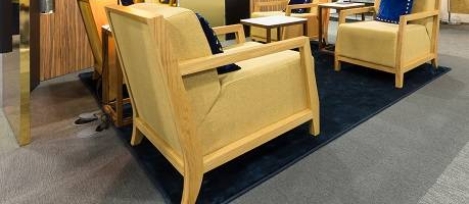June 15, 2016
New workplace technology will automatically adapt offices to needs of staff 0
 A new generation of workplace technology that allows the working environment to adapt to the needs of individuals will attract people to work in offices and contribute to their productivity, wellbeing and happiness. That is the key finding of a new report from US office furniture giant Haworth. According to the white paper Enabling the Organic Workspace: Emerging Technologies that Focus on People, Not Just Space a new generation of sensors will measure how offices are used and allow them to adapt on a day to day basis by changing temperature and lighting levels and responding to employees’ needs and influencing their behaviour in other ways. The white paper suggests this will be a development of existing technologies in the way it adapts the immediate working environment to the specific needs of an individual or group. This might even entail using biometrics to assess their psychological and emotional needs, according to the report.
A new generation of workplace technology that allows the working environment to adapt to the needs of individuals will attract people to work in offices and contribute to their productivity, wellbeing and happiness. That is the key finding of a new report from US office furniture giant Haworth. According to the white paper Enabling the Organic Workspace: Emerging Technologies that Focus on People, Not Just Space a new generation of sensors will measure how offices are used and allow them to adapt on a day to day basis by changing temperature and lighting levels and responding to employees’ needs and influencing their behaviour in other ways. The white paper suggests this will be a development of existing technologies in the way it adapts the immediate working environment to the specific needs of an individual or group. This might even entail using biometrics to assess their psychological and emotional needs, according to the report.
































May 18, 2016
What the imminent arrival of driverless vehicles will mean for the way we work 0
by Mark Eltringham • Cities, Comment, Flexible working, Technology
(more…)